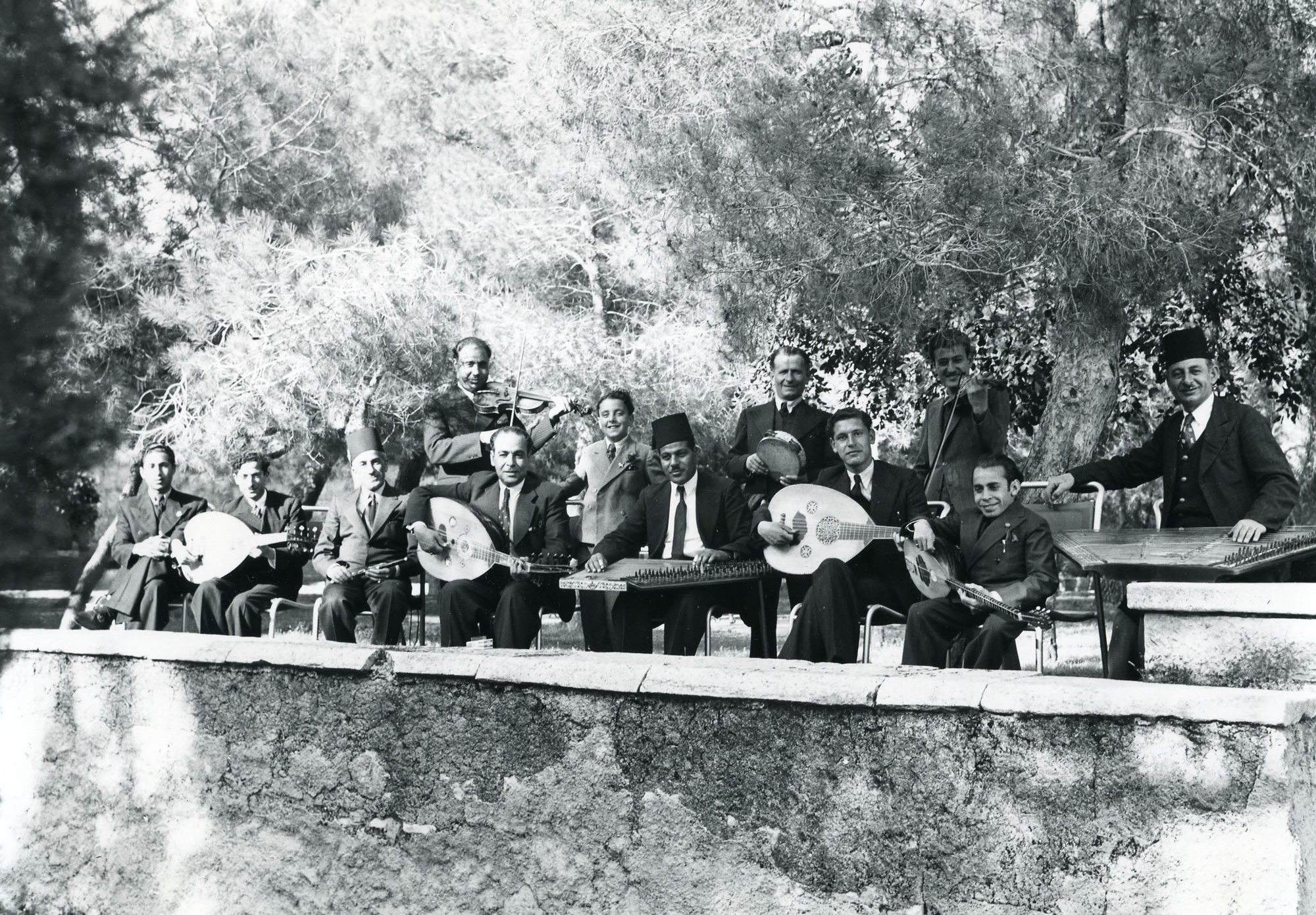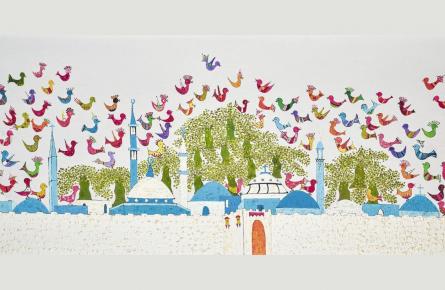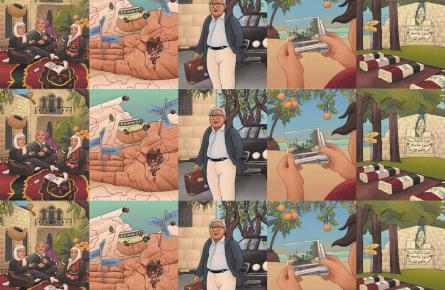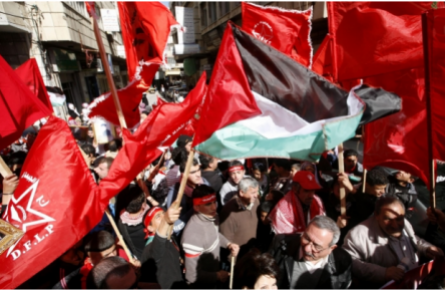When Jude Heib first started writing music nine years ago, he found solace in the space it offered him to pour his heart’s content on a page. He saw music as therapy, stemming from a personal and sincere place—raw and vivid.
“My music [speaks] to me [and] is still, in a way, therapeutic. [But my songs] are [also] letters from me to the world that a lot of people can relate to,” Heib says in a Zoom interview with Palestine Square.
The 23-year-old Palestinian music artist and rapper began publicly contributing to the music scene in 2018. Currently invested in Palestinian trap music, Heib writes songs that reflect personal experiences and emotions and in so doing, offers a holistic expression of the human condition that his audience resonates with. Themes of melancholy make their way across Heib’s tracks in the form of personal loss, struggles with the self and the mind, and heartache. Equally, a carefree lighter touch becomes evident in more experimental freestyle rap, in the lively beats of his party songs, and in spontaneous moments making music with good company.
Heib describes the thematic diversity in his music to be a natural given.
“[When] you write the song yourself, you’re going to sing it either as memories or thoughts. You are singing yourself basically, so it’s more genuine,” Heib says. “I guess [it’s just] different sides of my personality or different stages [of my life].”
Potent imagery is central to conveying Heib’s messages. In his song Alibaba, we find ourselves amid an adrenaline inducing shoot-out. In Ghufran, we are transported to a subdued setting where Heib looks to grasp onto anything to stop him from falling. He says the song is about the idea of having nothing to lose. In Casablanca, one of Heib’s most popular songs, a snippet of the creation process is revealed to us, freezing for Heib a memory of the good time spent with friends making music in his loft apartment in Haifa.
The intro to Casablanca is Heib’s genuine reaction to the first time he heard its beat, and to his friend making a ruckus while cooking in the background.
“My friends and I would [come] down from Nazareth [to my loft apartment in Haifa] and sleep there for a week. We didn’t [leave] the apartment; we just [made] music,” Heib shares smiling at the recollection. “The producer put on a beat [while] my friend was cooking… if you listen closely, you can actually hear the [clinking of] spoons and forks [as he served food] on the plate. And I tell him: ‘shut up, I wanna record!’”
Heib’s tracks are in Arabic, but that was not the language of choice when he started making music. English was the go-to-language in the music scene in Nazareth during that time. His transition into making Arabic rap music was inspired by a hip-hop event he attended in Nazareth in 2015 called Had Howe El Hip-Hop, which is Arabic for This is Hip-Hop.
“I [attended] with a friend and didn’t know what it was about. A couple of rappers went on stage and started rapping and I just fell in love with Arabic hip-hop. So, I started writing on my own.”
Occasionally, Hebrew words and verses make an appearance in some of Heib’s songs as in Casablanca and Toyota Freestyle; a natural inclusion given his upbringing in the Palestinian interior [‘48 occupied territories].
“I live in Nazareth,” Heib explains. “In the day-to-day language of Palestinians here, we use Hebrew… It [has] become [a part of] our daily dictionary”.
Heib, however, doesn’t think he will ever intentionally use the Hebrew language in his music.
“I wanted to rap in Arabic because I am Arab [and] I am proud of my language,” Heib says. “There is this huge shift that happened here and right now everybody wants to sing in Arabic. They are proud to be Arab and they want to send this message to the world.”
Heib offers insight into life in the Palestinian interior [’48 occupied territories] to many Palestinian diaspora listeners who have no tangible access to Palestine.
In the grander context of Palestinian music, Heib’s rap departs from familiar anthems of resistance culture and static representations of the Palestinian as a hero and political being. Heib’s music instead reverberates the message that there is more to Palestinian life, presenting Palestinians as dynamic beings capable of experiencing love, joy, heartbreak, and personal struggle.
“I agree that most of the Palestinian music [is linked to] resistance. But there is diversity and I really think we should push that diversity,” Heib says. “Resistance… we live it day by day, but there is other [things] we live [through] day by day too.”
Heib is soon to release new songs. He finds that his style has developed over the course of his music journey.
“All of my music until now has been experimental in a way, [I was] trying to find my style, hence why [the tracks are so different]”.
Heib’s upcoming album marks a shift in his music. “It’s going to be songs which are still diverse [in nature] but in all of them you can say: ‘Yeah, Jude is singing.’ I think I have finally found my rap style so I can actually [make] the songs I wan[t] [to make] and not experiment around.”
Heib’s new album title indicates this shift—Min Al Nihaya Ila Al Bedaya which is Arabic for From the End to the Beginning. Heib brings an end to a phase of discovery and begins one of recognition.
The first of Heib’s new songs, Sdqni Msh Nasi ft. Fawzi, is expected to be released in late September. Listen to his music on SoundCloud here.





